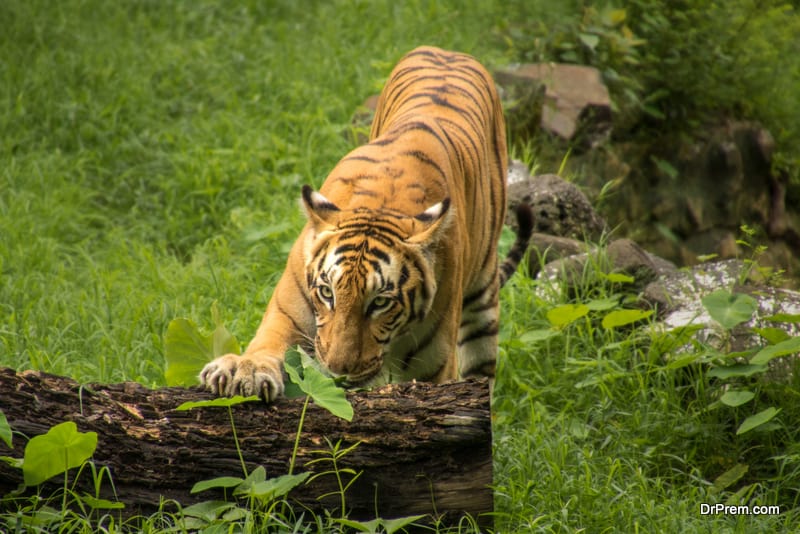Succumbing to market forces and the pressure of tiger farmers the Chinese government could decide on lifting the ban on world’s most endangered species.
China is the biggest traditional market for medicines made from tiger parts but it had banned its sales fourteen years ago as a part of global effort to save these big cats from extinction.
China’s population of wild tigers had almost been wiped out with only fifty left in forests situated in north-east of country but commercial farmers have reared about 5000 in captivity and a thousand new cubs are born every year in these farms now.
At present the valuable bones, carcases and other parts of a tiger cannot be sold legally so they are kept in deep freezer after the tiger dies. Several farms are getting ruined because they have bred thousands of these tigers but it is all worthless until the ban is lifted.
Mr Wang , deputy director of the department of wildlife conservation of the state forestry administration, said
A change of policy is inevitable.It will be a waste if the resources of dead tigers are not used in traditional medicine.
Any change in china’s present ban would lead to international outrage. Conservationists fears that any re-opening of the market would accelerate poaching despite promises that captive tigers would be tagged to distinguish them from wild tigers.
At a meeting in hague last week Mr.John Sellar, senior enforcement officer at the Convention on International Trade in Endangered Species, criticized the captive breeding programmes as having limited potential for conservation.
Furthermore these captive tigers cannot survive in the wild because they are very tame. Conservation groups activists also accuse farmers of increasing the stock of captive tigers despite overcrowded cages and degrading genetic quality so that they can put pressure on government to change its policy.
Via: Guardian


